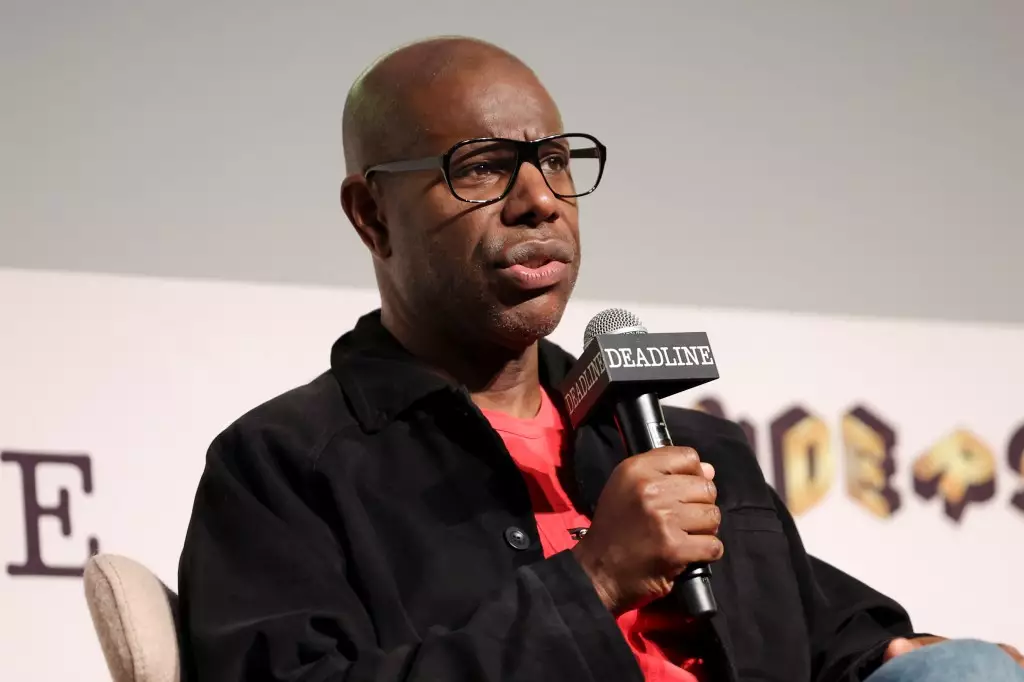In the vast cinematic landscape dedicated to World War II, filmmakers have embarked on myriad storytelling paths, each offering unique perspectives to its historical tapestry. The latest entry comes from Oscar-winning director Steve McQueen, who delves into the conflict from an unexpected angle—through the innocent eyes of a child. In a recent discussion at Deadline’s Contenders Film event, McQueen expressed his intent to redirect the audience’s focus, challenging the adult audience to reconnect with their lost sense of wonder and curiosity. His reflections resonate deeply in a world increasingly desensitized to violence and tragedy.
McQueen articulates a poignant observation about childhood innocence, evoking memories of simple moments shared with his daughter. He emphasizes a transformation that occurs during adulthood—the loss of the ability to see and appreciate the small wonders of life, such as a leaf in autumn. This metaphor serves as a catalyst for McQueen’s narrative, urging viewers to question at what point society starts compromising its values. The director’s introspection on curiosity and perception becomes the foundation for a story that seeks to relive and understand the catastrophic impact of warfare through youthful eyes.
The film, titled *Blitz*, introduces George, a nine-year-old boy navigating the complexities and perils of World War II London after being sent away for his safety. His mother, Rita, played by Saoirse Ronan, represents the emotional core of the film, as she desperately searches for her lost son amidst troubling times. George’s unyielding determination to return home to East London encapsulates the spirit of childhood defiance. His journey reflects not only his struggle for survival but also the powerful bond between mother and child, which resonates in the heart-wrenching backdrop of war.
By centering on George’s perspective, McQueen effectively rejuvenates the narrative surrounding World War II—inviting audiences to experience events that have, for many, become mere historical facts. This shift in viewpoint allows for a fresh take that highlights the profound implications of conflict on the innocent, underscoring themes of loss, yearning, and resilience. It also opens a dialogue about how wars desensitize people to suffering, positioning George’s journey as a window to explore both the personal and social ramifications of such events.
To authentically portray life during World War II in London, Ronan committed herself to understanding the cultural nuances of the time, including the distinct East London accent, known as Cockney. In her collaboration with a dialect coach, she discovered layers of historical significance embedded in the way people communicated back then. The accent is not merely about sound—it embodies the character’s social background, aspirations, and struggles against the era’s prevailing circumstances.
Ronan’s acknowledgment of the “vintage sound” highlights the importance of dialect in representing a rich cultural history that might otherwise fade into obscurity. The actress’s insights reveal a thoughtful engagement with her character’s identity, enriching her portrayal of a woman attempting to uphold her dignity amidst chaos. The effort to access this accent underlines the film’s dedication to authenticity, demonstrating that every detail contributes to the greater narrative of resilience within the war-torn landscape.
A Cinematic Approach to Rebirth and Reflection
Ultimately, *Blitz* reflects not only on historical events but also on the societal values that have evolved—or devolved—over the years. By juxtaposing a child’s innocent perspective against the backdrop of a brutal war, McQueen fosters a renewed engagement with a well-told narrative. The film invites viewers to reflect on what has been lost in the adult world, encouraging a re-examination of empathy, curiosity, and the essence of human connection.
As filmmakers continue to seek new mediums and methods for telling complex stories, McQueen’s approach serves as a reminder that often, the most powerful narratives emerge from the intersection of innocence and experience. Through George’s harrowing journey, *Blitz* not only pays homage to history but also inspires a profound reckoning with the enduring impact of war on the human spirit.


Leave a Reply